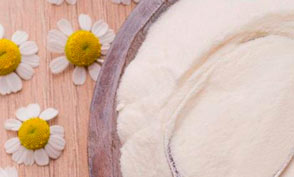
×
Collagen protein is not unfamiliar to most people, but when it comes to hydrolyzed collagen protein, many people are not very clear. What is closely related to our lives is actually hydrolyzed collagen protein.
This starts with collagen protein. Collagen protein mainly exists in connective tissues such as animal tendons, ligaments, cartilage, skin, etc. It is a type of protein composed of three polypeptide chains and has a triple-helix structure.
Currently, 29 homologous and heterologous trimers have been identified, such as Type I, Type II, and Type III collagen protein. All of these trimers have a common n-terminal amino acid repeat sequence, which not only distinguishes collagen protein from other proteins but also produces the characteristic triple-helix structure of collagen protein. Type I collagen protein fibers are the most important structural component of all connective tissues and serve as a structural scaffold.
Under the action of acid, alkali, heat, or enzymes, collagen protein is hydrolyzed into a mixture of polypeptides, also known as hydrolyzed collagen. Currently, most hydrolyzed collagen proteins are prepared by enzymatic hydrolysis, using enzymes such as pancreatic protease, pepsin, gastric protease, alkaline protease, protease E, chymotrypsin, collagenase, bromelain, or papain.
The current hydrolyzed collagen supplements mainly use connective tissues such as animal (including beef, lamb, pork, fish, and poultry) skin, bone, tendon, and cartilage as raw materials. In addition, fins, scales, etc. of aquatic animals can also be used.
The research on collagen protein hydrolysates mainly focuses on the following aspects.
Antioxidant
Studies have shown that compared with many other antioxidant peptides, hydrolyzed collagen protein is more effective in inhibiting lipid peroxidation and can also protect cells from oxidative damage by free radicals. Hydrolyzed collagen protein has a strong free radical scavenging ability, and its free radical scavenging ability increases with the decrease of molecular weight. The presence of specific amino acids is not only essential for antioxidant activity but also the correct order of amino acids in the polypeptide sequence plays an important role in exerting antioxidant activity.
Antihypertensive
Antihypertensive peptides are a class of polypeptide molecules that lower blood pressure by inhibiting angiotensin-converting enzyme (ACE). Since the active site of ACE cannot match the polypeptide macromolecules, most of these polypeptide molecules have a relatively short sequence and low molecular weight. After appropriate enzymatic hydrolysis, collagen protein can obtain antihypertensive peptides.
Treatment of osteoporosis
Hydrolyzed collagen products can be used as activators for the treatment of calcium deficiency syndrome, and they have significant therapeutic effects on calcium deficiency in children and adolescents. High-purity hydrolyzed gelatin can effectively treat early osteoporosis caused by calcium

+860573-87998299